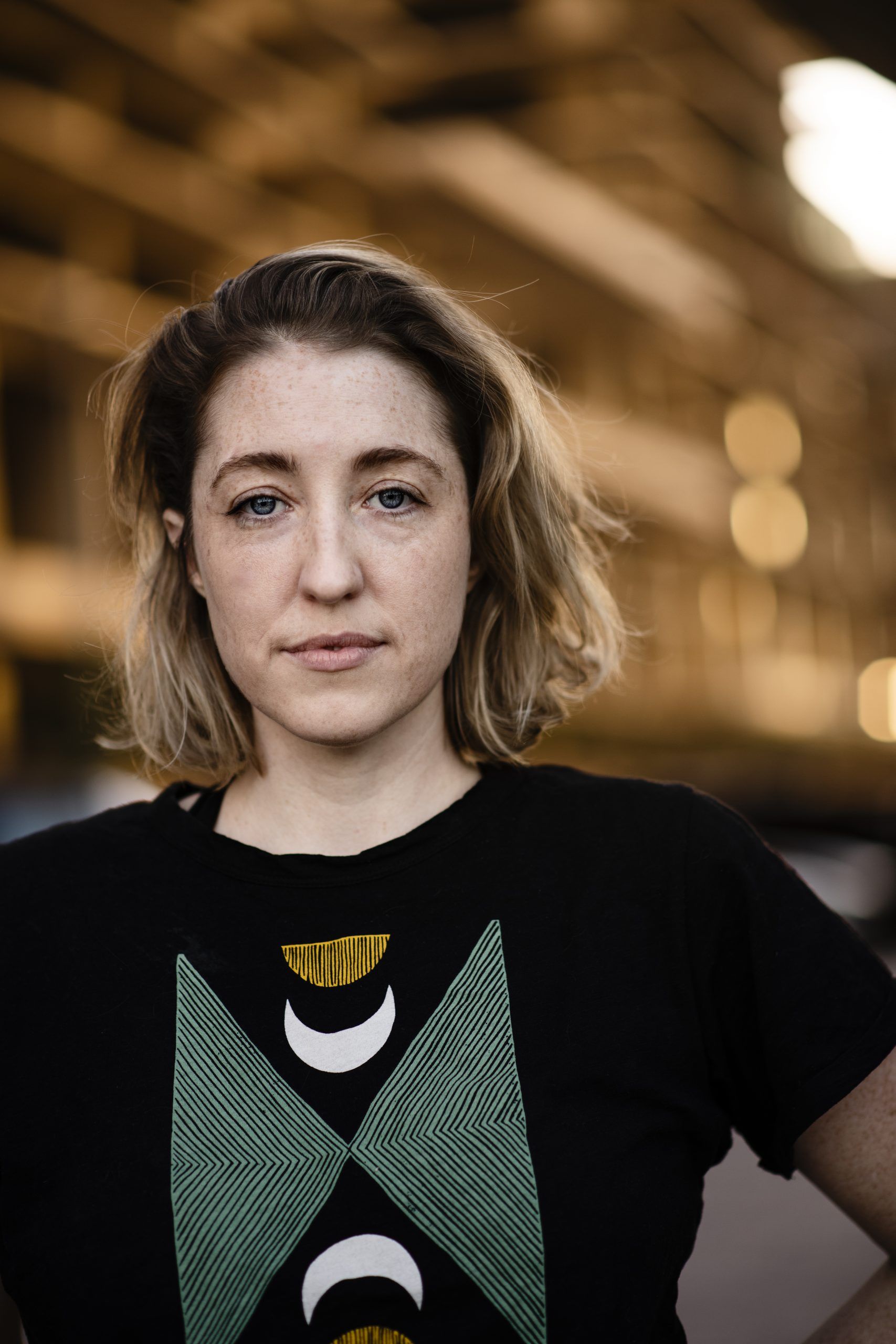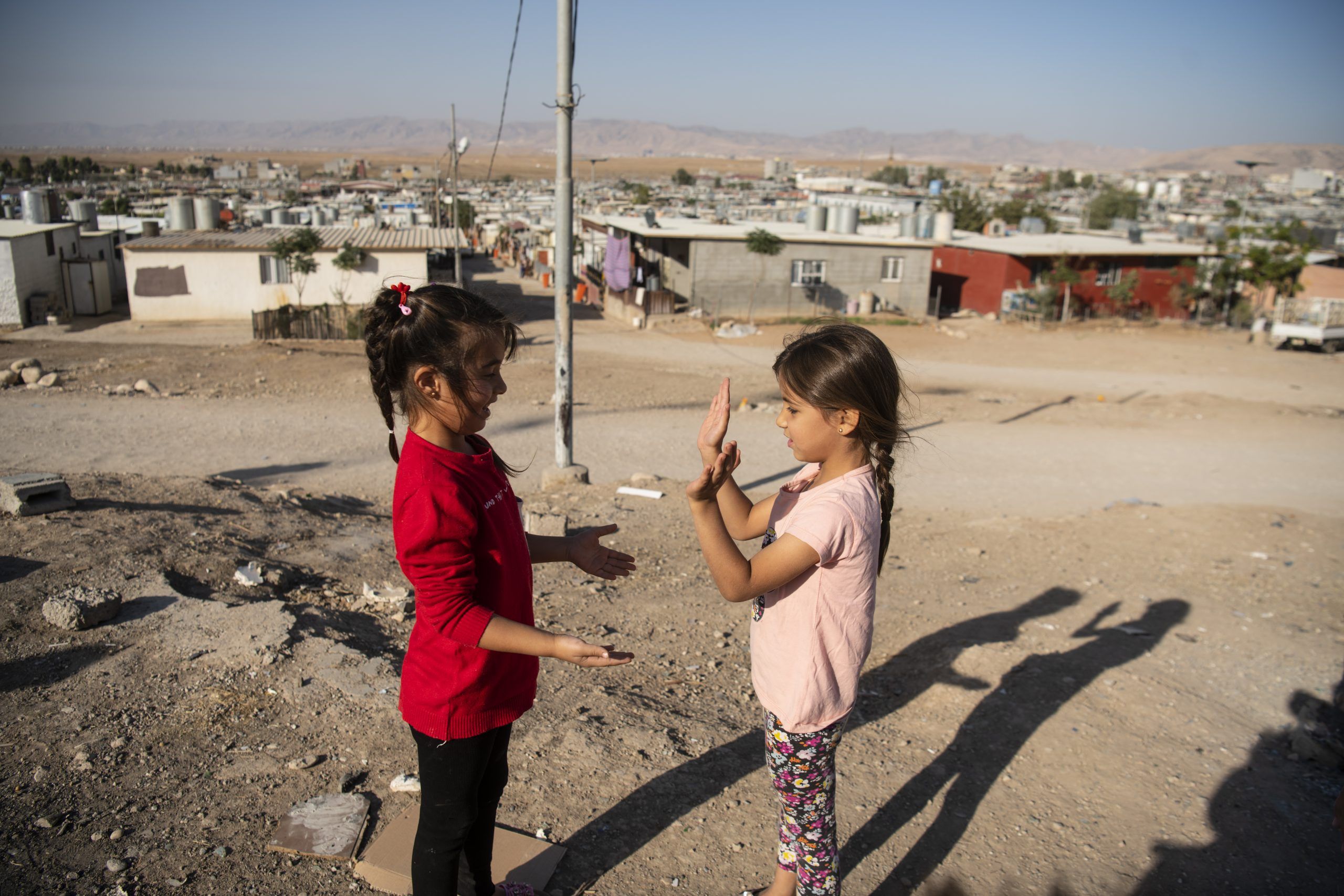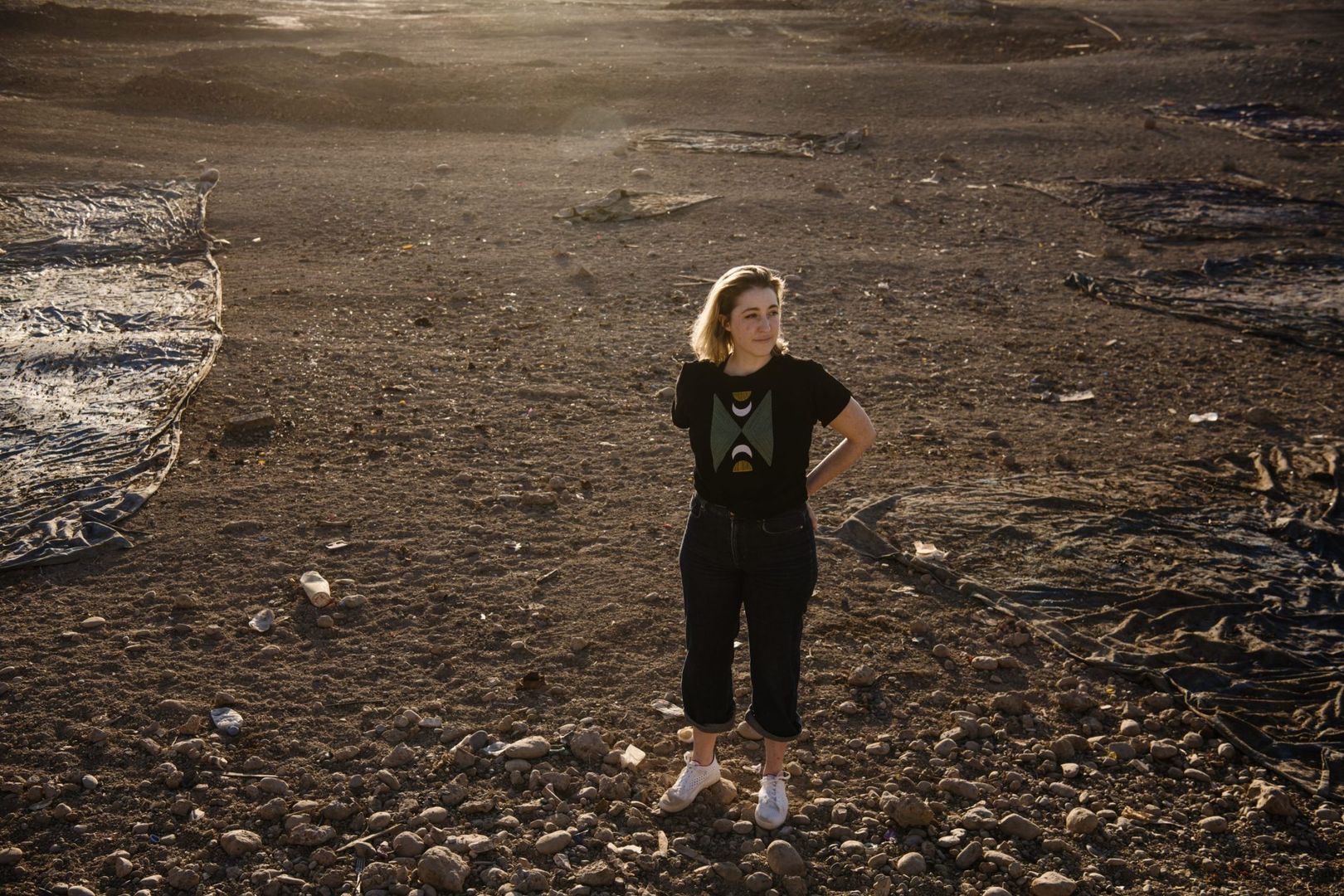DanChurchAid
In 2020, DanChurchAid helped 61,000 Syrians with shelter and necessities.
215,000 Syrians received trauma therapy and psychosocial support.
Residential areas for 84,000 people were cleared of unexploded ammunition, and children and adults have been informed of the risks of living in areas contaminated with the debris of war.
While vengeful militias and unscrupulous terrorist cells weaken progress, DanChurchAid is trying to get aid to those Syrians who are beyond the reach of even the UN. 34-year-old Whitney Mills from Texas is at the forefront of this challenging work. She tells us about hope and fear in the battle to give people their regular lives back.
“Houses, schools, and playgrounds must be cleared of potentially explosive ammunition left behind. Almost everything needs to be rebuilt. These desperate people need basic humanitarian aid to just survive.”
These words come from Whitney Mills, a woman from Texas who has replaced the American desert with the Syrian desert. From the town of Derik, she leads DanChurchAid’s humanitarian efforts for the victims of the civil war that ignited in 2011. The devastating flames of war have still not been fully extinguished, and they have left behind a charred and torn country.
The regime and the dictator who provoked the uprising and started the spiral of violence are still in power. But Syria is now unrecognisable. When you zoom in, you see the devastation. When you zoom out, it looks at best fragmented. Large rural areas are no longer ruled from Damascus – only on paper. This means that millions will not receive humanitarian aid because the UN does not have a mandate in areas that have severed ties with Syria.
“We operate in Northeastern Syria, an area the government lost when Islamic State rose up on a foundation of desperation and desert dust in the border country between Iraq and Syria.”
The caliphate is still alive
In Northeast Syria, also known as NES, Kurds struggle to hold on to power over a territory that was captured from Islamic State in 2017. However, according to Whitney Mills, peace has in no way descended over the land:
“Kurdish self-government functions on a fragile and explosive foundation. It is estimated that one in three Syrian buildings is contaminated with explosive devices. Countless militias are still operating in NES. Poverty is out of control, and security – even for our staff – is in critical condition.”
The Kurdish forces in Syria were world-famous for defeating Islamic State. But even though the caliphate has fallen, the ideology is still thriving. Whitney Mills’ eyes darken:
“Humanitarian relief work is difficult and dangerous in NES. Small pockets of Islamic State and other radical militias are still alive. The Syrian regime and Turkish-backed militias are doing their best to kill the dream of an autonomous Kurdish area.”
The children of war are going to school again
Although Deir ez-Zur is one of the areas threatened by both Islamic State and the Syrian regime’s troops, DanChurchAid’s mine sweepers have managed to set up a school here. It was filled with the remains of cluster bombs and the explosive debris left behind by the IS warriors.
Many children have psychological scars from the war and are therefore offered trauma therapy and psychosocial support. We are designing the school with ramps and disability oriented solutions so that the 12% of Syrian children who have physical injuries may attend school.
“There is still fighting close by, but children need to go back to school and gain some semblance of a normal daily life. As an organisation, we have many strengths to apply. This lets us ensure that the children return to and benefit from school.
We can support parents financially so that they can rebuild their houses without sacrificing family meals.” Whitney Mills emphasizes that DanChurchAid has a special focus on creating an optimum relationship between the various efforts.
Hope growing among the ruins of the city
Syria is cluster bombs, bloodshed, chemical weapons, torture, terror, fear, and displaced persons.
But Syria is also women who have had enough of oppression. Syria is newborns who will not understand the tragic history of their country until many years from now. Syria is young people clinging to the hope of a better future.
For Whitney Mills, Syria is all the civilians who want to have their regular lives back:
Raqqa is a completely devastated city sitting on mass graves.
People are wounded. At the same time, it is a city of hope and energy.
A third of the city is still destroyed, and many buildings are at risk of collapsing at any time. Yet I see children playing everywhere as well as adults opening quite a few restaurants among the bombed-out ruins.”
The end of the dominance of men
When Islamic State ruled Raqqa, there were very few women and children in the streets. In the caliphate, city space belonged to men with long beards, but today, women and children are helping bring the city back to life.
“We should never underestimate the positive impact of diversity in society,” says Whitney Mills, an outspoken feminist. She enthusiastically describes how women are taking an active leadership role in the restoration of Syrian society:
“In Raqqa, for the first time ever, the mayor is a woman, and I meet entrepreneurial women throughout the city who are trying hard to create a new Syria with a better balance between the sexes.”

Turkish militias threaten peace
Things are looking brighter in Raqqa, but Turkish-backed militias still cause Whitney Mills concern for the future:
“The Turkish-backed militias are trying with full force to extend the so-called Turkish security zone and link the zone to areas around the Syrian city of Afrin that Turkey already controls.”
In 2019, Turkey took control of a 115-kilometre strip of Syrian territory. The Turkish troops displaced thousands of people when it was proclaimed that the region would now act as a buffer zone between Turkey and war-torn Syria. The Turkish forces may strengthen their position if they manage to link the buffer zone to the areas around Afrin, but according to Whitney Mills, the military strategy will have severe human consequences:
“The humanitarian situation in cities such as Kobane and Membij is already critical. If Turkish-backed militias occupy those areas, refugees will be forced to flee again.”
At the same time, she stresses that it is not just the security situation on the border with Turkey that may escalate the humanitarian crisis. The forces loyal to the Syrian regime to the south and west are also trying to regain control of the Kurdish areas.
“If the Syrian regime regains power in NES, it could entail extensive reprisals for civilians who supported Kurdish self-government.” “Whatever happens, the chaos is sadly not over yet.”
Domiz refugee camp
On the Iraqi side of the border between Syria and Iraq, 29,000 people live in the Domiz refugee camp. No one among those with whom DanChurchAid spoke in preparing this article sees any possibility of returning home to North East Syria. That area is still suffering from violent conflicts and extreme food shortages.

DanChurchAid: 100 YEARS OF HOPE AND ACTION
2022 marks the 100th anniversary of DanChurchAid’s work to save lives, build resilient communities, and fight extreme inequality worldwide.
DCA’s anniversary is a story of 100 years of hope.

